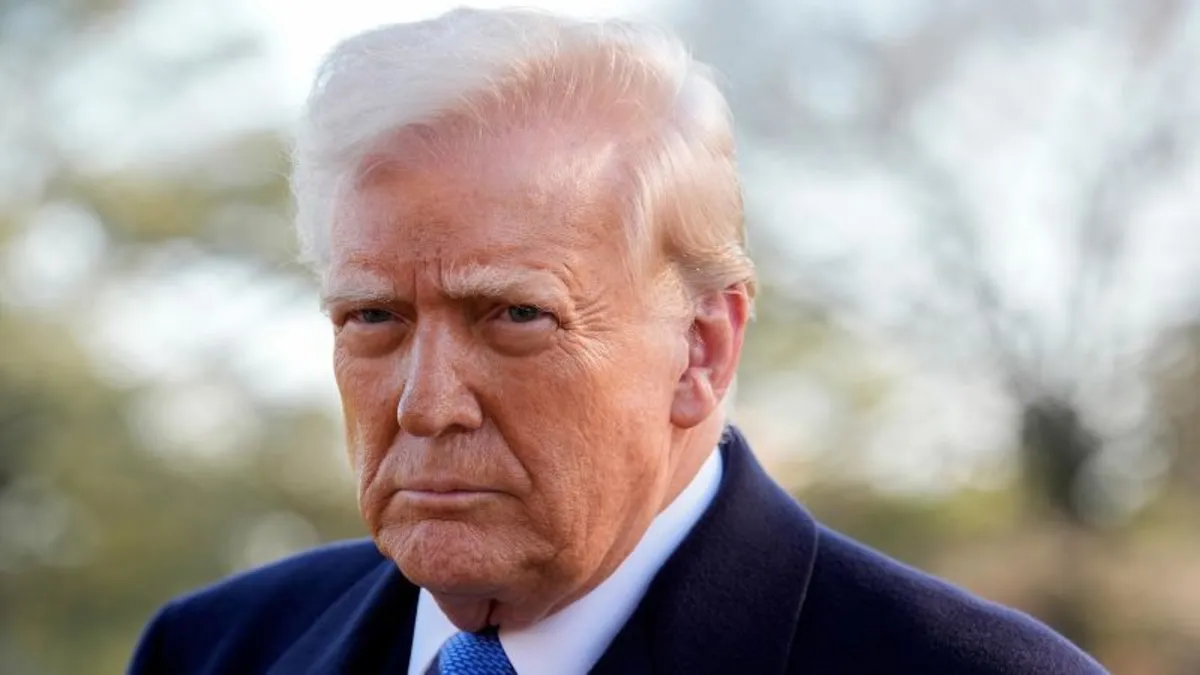
In a striking display of executive authority, President Donald Trump is leveraging the federal government to intimidate and neutralize potential sources of opposition, including the legal establishment, academia, cultural institutions, the media, the judiciary, the Democratic Party, Congress, and independent government oversight. The scope and intensity of Trump's actions against his perceived political adversaries in the initial months of his return to office are unprecedented. This situation highlights both his willingness to test the boundaries of presidential power and the struggles faced by his opponents in mounting effective resistance.
Through a series of executive orders, the use of his bully pulpit, and the influence of loyalists in key government positions, Trump is effectively paralyzing institutions that are fundamental to America's civic society. For instance, two law firms that have come under Trump's political wrath have opted to negotiate terms that mitigate his threats. In academia, institutions such as Columbia University have acquiesced to extensive demands that infringe on long-standing principles of academic freedom.
“This White House’s public, multi-pronged frontal assault on national institutions is unprecedented,” remarked Timothy Naftali, a CNN presidential historian. He emphasized that while institutions can be rebuilt, the political culture could be tainted for generations.
The traditional sources of presidential opposition are becoming increasingly subdued. Independent media organizations like the Associated Press are being systematically excluded from accessing the president, while pro-Trump outlets are given preferential treatment. The legislative branch has, in many ways, relinquished its constitutional role as a check on executive power. Republicans in Congress appear willing to cede control over federal spending to the Department of Government Efficiency, which has effectively dismantled numerous agencies and programs established by law.
Moreover, the Democratic Party has struggled to present a unified front against Trump, often mired in internal conflict over how best to challenge his administration. Within his own administration, Trump has dismissed inspectors general at over a dozen federal agencies alongside the head of the Office of Government Ethics.
While Trump’s administration has faced significant pushback from the federal judiciary, with judges frequently blocking or overturning his actions deemed unconstitutional, this judicial resistance has not gone unnoticed. Judges opposing Trump have encountered attacks from the president and his allies, including threats of impeachment or the dissolution of courts that do not align with his agenda. Notably, many injunctions issued at the district court level could face challenges in a Supreme Court where Trump appointed a third of the justices during his first term.
During the 2024 campaign, Trump intensified his attacks on the prosecutors investigating him. Now back in office, he has taken steps to undermine law firms linked to those investigations by revoking security clearances and limiting access to federal buildings. This aggressive approach has resulted in a divide among targeted firms; some are opting for litigation while others are settling with Trump to avoid further repercussions.
Initially, Trump targeted Perkins Coie, a law firm that played a role in funding the 2016 Russia dossier, and Covington & Burling, whose lawyers previously represented special counsel Jack Smith. While Perkins Coie attempted to fight back in court, winning a temporary restraining order, other firms have chosen to settle, fearing the implications of prolonged legal battles.
The Trump administration has capitalized on discontent surrounding pro-Palestinian protests at universities, notably Columbia, by canceling $400 million in federal grants over allegations of inadequate responses to harassment of Jewish students. The administration's demands for policy changes at Columbia have prompted significant concerns regarding academic freedom and autonomy.
Columbia is not alone in facing scrutiny; the Department of Education is currently investigating 60 colleges for alleged antisemitic harassment. The Trump administration's actions could severely impact research funding and academic independence across the nation.
Trump's efforts to undermine the media began during his first term, branding unfavorable coverage as "fake news." Now, his administration is restricting press access, exemplified by barring the Associated Press from key events. The Federal Communications Commission (FCC) has initiated investigations into various media companies, signaling a troubling trend of government interference in media operations.
In Congress, Republican lawmakers have largely supported Trump's approach to federal spending, with little resistance to his actions that circumvent legislative control. This abdication of responsibility raises alarms about the erosion of institutional norms and the precedent being set for future administrations.
The Democratic Party finds itself in a precarious position, struggling to regain power while fearing potential repercussions from Trump's Justice Department. The administration's recent executive order, which seeks to impose new restrictions on voting processes, has sparked outrage among voting rights advocates and is likely to face legal challenges.
Furthermore, Trump's administration has shown a willingness to investigate political adversaries, amplifying concerns about the weaponization of government resources against opposition figures. These tactics are perceived as authoritarian measures aimed at consolidating power and dismantling political competition.
As Trump continues to stretch the limits of executive power, the implications for American governance, civil liberties, and institutional integrity are profound. The ongoing battles in the judiciary, the challenges faced by the media, and the responses from academia signal a critical juncture in U.S. political culture. The stakes are high, and the potential for long-lasting effects on American democracy remains a pressing concern.